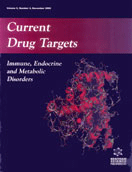Abstract
Nitric oxide (NO) is a pleiotropic mediator of numerous biological processes, including smooth muscle relaxation, neurotransmission and defence against pathogens. In addition, NO is involved in the pathogenesis and control of inflammation, tumors, autoimmunity, and infectious and chronic degenerative diseases. NO, a highly reactive radical, is produced from L-arginine and oxygen by the enzyme NO synthase (NOS). Three NOS isoforms have been identified: two distinct NOS isoforms are constitutively expressed in cells, whereas a third isoform, inducible NOS (iNOS), is transcribed in response to specific stimuli. In particular, iNOS is responsible for the discontinuous synthesis of high amounts of NO and was originally characterized in murine macrophages after exposure to cytokines and / or microbial products. A wide range of microorganisms is sensibly inhibited in its development by NO, like fungi, bacteria, protozoa and viruses. Although NO production and its antimicrobial effect appear well established in rodent macrophages, the existence of L-arginine pathway in human mononuclear phagocytes has long been disputed. Recently, evidences showing the iNOS activity and NO production in other animal models, including humans, are now emerging, even if the NO induction has been more difficult to demonstrate. The present observations provide evidence for the occurrence of iNOS protein expression and NO production in human macrophages cultured in vitro.
Keywords: iNOS Expression, macrophages, arginine



















